Try not to dance when DJ Dan throws down some funky and fun disco house. It’s darn near impossible. Though his set at America’s largest EDM festival, Electric Daisy Carnival, was one of our top moments, we’ve been dancing our hardest to his sounds for years. A graduate of the ‘90s rave scene, DJ Dan has been in the biz long before UFO pants gave way to fluffies and he deserves mad respect. We caught up with Dan fresh off the release of Nothing but a Party and Anhanguera’s “Yes We Like (DJ Dan & Mike Balance Remix),” to learn more about longevity in an often fickle industry, the joys of sampling, and literally fighting back against crappy requests.
First off, thanks for not selling out and going the EDM route like a lot of your contemporaries.
It’s crazy how things turned so quickly. I kind of look at it like this: When electronic music got massive and blew up in everybody’s face, whatever sound was right there was what everybody latched onto and didn’t really have time to learn where it all came from, or what led to that sounding that way, or is it in a particular form that people like the most? It’s just the one that was shoved in their face, do you know what I mean? So now it’s time to do some research and check your history [laughs].
Let’s talk about shitty warehouse parties. What do you remember most about the scene when it started?
The first gig I ever played was Altered States in downtown L.A. in 1991. It was three-days long and it basically went the whole time. It was in this really nasty, sleazy, underground warehouse space and there were rats in the alleyways to get to it. But you couldn’t hear anything on the outside. I don’t even think the promoter rented it; I think they just found it and took it over. It was pretty disgusting.
It was myself playing, Doc Martin, Ron D Core and Barry Weaver. We were the DJs for the three days. That kind of started it all. That’s where I met Ron D Core and we really hit it off as friends and stayed in touch. We had a tape series and through the first tape I did with him, that’s what really set it off. People got a hold of it and loved my music.
DJ Dan DX2 Vol 1 – With Ron D Core! by Denvermixtapes1990s on Mixcloud
How long were your sets over that three-day party?
Well, since I lived in Hollywood, I would just go and I would play a few hours each night and hang out for a bit, and then I would go home and come back. I don’t even know exactly what they were doing during the day, I was never there for that. I didn’t want to be there for that [laughs].
When you see what the scene turned into, what are your impressions, not only about the music, but the culture?
Eventually, it had to get this big. If you look at America, we’ve always kind of followed the path of what happened in Europe and England, only it happens to us a long time later. It made a demand for electronic music which made a demand for them to step up the events and put in better sound, better visuals, better lighting, just upgrade everything in general. It created the mega-paid DJ and it also created a demand for clubs to step up their game as well because now that music is being heard in clubs so that’s why you’ll have a lot of major, major clubs in the U.K. and very beautiful nice clubs with high-end sound systems; 10 years ago, we didn’t have that. I think in terms of what’s happening with that, it’s a good thing.
My only thing is right now—and I’m also starting to see a lot of the DJs that even came out of this within only a few years who used to play dubstep, are now starting to play house or deep house. You’re starting to notice the people that have been in it long enough are going, “Hey, wait a minute. Where did this come from? And what was before? Let’s check some of this other stuff out.”
You played EDC on the 7UP stage. Did they give you unlimited free 7UP?
You know what, I don’t think I did drink 7UP. I had some vodka and I think orange juice, but I don’t think 7UP. I thought there’d be a shower of 7UP and bubbles flying everywhere!
You had the most fun, lighthearted set and three separate dance circles were going on, as opposed to other sets were a lot of fist pumping and staring at the stage.
That’s my focus these days. I just want to make sure people are having a good time and remember that going and dancing is supposed to be about fun and getting in rhythm with your body. It’s not about waiting for the drop to happen and jump. That’s jumping. I want people to be all about dancing. What do you like to dance to? Things you can relate to, things that feel fun, things that are lighthearted with clear basslines or just really fun disco loops or fun themes in songs that everyone can relate to, samples everyone can relate to. I’m just trying to bring it back to that so everyone has a good time and I’m really happy that was accomplished.
You’ve found a great combination of including familiar samples without being the obvious hits everyone else is playing. How do you approach a set in finding the fun familiarity without beating people over the head with the same commercial stuff?
It’s a tricky one because there’s the obvious stuff that you go for and that does work, there’s no doubt about that. For me personally, I had one guy tell me that when I make my music that I sample too much. But that’s just a matter of perspective; I sample of purpose so that people have a sense of familiarity in what I play, even if they dancing and are like, “I really like this; I don’t know why.”
I get a kick out of it, I like to make people think a bit, I like to take samples that they know and then chop them up in such a way that there like, “Wait a minute.” For my set, I used the 2 Live Crew “Face Down Ass Up.” I cut that up and turned it into a Chicago jackin’ G-house formula track and it was just funny to watch, everybody was going off to it. I was like, “They know that song!” I was scared it was going to be offensive to people, but no, it’s funny, it’s hilarious. Stuff like that and then to have the K.C. and the Sunshine Band “That’s the Way I Like It” disco loop in the background. That’s the kind of stuff I just feel free and makes people happy and that’s why I got into dance music: because I loved the fact that people were sampling and using the familiar and to hear it used in a clever way, it makes me want to dance even more because I feel comfortable and I feel everybody can relate to it and vibe about it.
Also, everything is so fucking serious and crazy and I’m like, let’s just have fun! Everything has to be so epic. Just be really good and groovy. I love it when I see people dancing with each other; I don’t like it when people stare at me. If they’re staring at me, then I’m doing way too much to create all the energy and making the music all about me and I’m not down with that. I want it to be about everybody coming with their friends, getting down and really settling into a groove and just dancing with friends, that’s what it’s about.
Is there anywhere to nab the “Face Down Ass Up” track?
Yeah, “Face Down Ass Up” is the remix that Mike Balance and I did of Anhanguera’s “Yes We Like.”
Didn’t some clubber beat you up in the DJ booth recently?
[Laughs] That’s so dramatic! This girl when I was in Baltimore, kept coming up and thinking she was really cute, and wanted to hear—I won’t say what it is, let’s just say Britney Spears—and I told her, “Listen, if I had that track and it was something I liked, I’d play it, but I just don’t.” She kept asking for other stuff and said, “Well you’re the DJ, you’re supposed to have it!” Clearly she had been going to top 40 clubs where the resident DJ has to do that. In this case, she stepped into an underground party with her boyfriend, they did not know where they were or anything about the night and she kept pushing it.
Finally she came around to this side with this guy—I didn’t even know they were together—and I went down three steps thinking, “Maybe this time she came back with something cool.” I don’t mind requests if people know me and what I play. So I asked and she came up with some bullshit again and I told the guy, “Can you please explain to her—“ and he goes, “You need to stop being so disrespectful and play her track.” And I said, “I don’t have to do shit.” That’s when he hit me, I ducked, and he came after me onto the stage. I shut off the music and the lighting guy shined a light on him and I said to the crowd, “This dude just hit me because I won’t play his request.” The whole crowd booed him. This guy is gonna have nightmares for the rest of his life [laughs]. You should have seen it; it was insane. This was a community of people that came out to hear me play and have for 15 years.
What are some of the challenges as a veteran DJ in the scene with all these young guys who rose in popularity because of social media, such as maybe because they’re funny on Instagram?
It’s a strange one. I see that happen and to be honest, I don’t envy them at all because who knows what the future holds? … I have established my sound enough to where I don’t have to change my sound every two years. I play what I play and that’s it. If you blew up overnight because you jumped on a trend right away and it blows up huge, you’re in a very dangerous spot because if that trend doesn’t continue to be cool, then you better be really, really good at reinventing yourself. I see it sometimes and I think, “Wow. That’s amazing. I could take some pointers for how this person markets themselves.” But in terms of blowing up so quickly overnight, it’s a dangerous situation because it’s like, “How do I now have longevity, especially because I chose to blowup in one genre?” You know how I am: I play disco, house, techno, I even throw in some breaks, I try to make sure that it’s hard to really pigeonhole me. I don’t like to be pigeonholed so that makes it easier for me to have longevity.
The other thing, to be honest with you, I’ve been doing this so long. When I was doing three raves a night, I invested in my house, renovated it and put money away. At this point in time for me, I play the parties I really want to play. Sure, I get paid really well on some parties and just okay on others, but I do it because I just really want to keep doing it because it’s my passion. Now I’m in a fortunate position where I don’t have to do it just based off of money. A lot of DJs have to play the big room, popular trendy thing because there’s a lot of pressure to make $10,000 because you have a manager, a publicist that take 10-15 percent. I have one person, a booking agent that takes 15 percent, and I manage myself. So I can do whatever the fuck I want [laughs]!
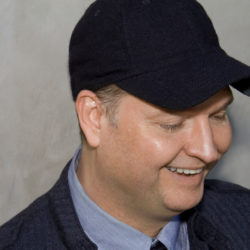
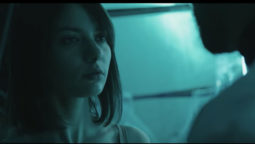
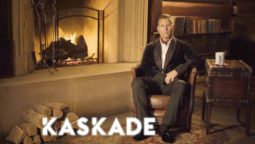
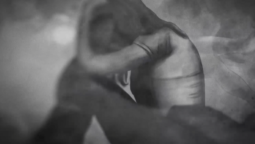
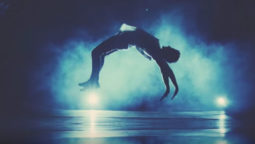
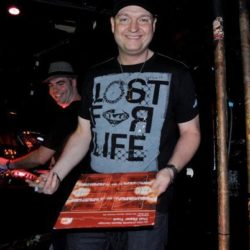

Join the discussion
comments powered by Disqus